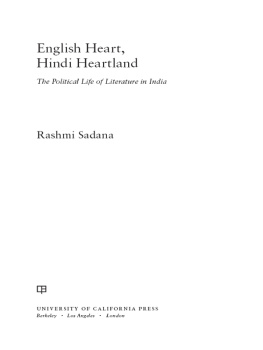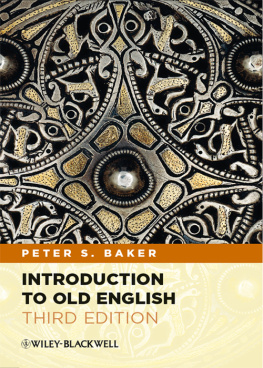Mahasweta DevisBedanabala. Her Life. Her Times.: Unheard Melodies of the Other
Dr. Indrani Singh Rai
Perhaps very few have tried to hear the unheard melodies of the silenced who are the inhabitants of the margin. Only some have ever endeavoured to feel their ache and agony, effort and quest to find a voice in the society. These melodies bear strains of pain and gloom, but even in their misery and murk, the melody of life is floated. The human spirit that has been striving for liberation and bliss from long back still tries to seek life through buoyancy and fortitude. This unheard melody is the song of the life; an oeuvre of custom; a tale of the other, the subaltern.
Bedanabala. Her Life. Her Times is a moving fiction which deals with the unspeakable anguish of a class that exists in the same society where the mainstream lives but at the same, they are still marginal because they are called prostitutes, whores or kept women. Mahasweta Devi through her perceptive creation tries to sympathize with this segment and tries to correct the outlook of common people that the prostitutes cannot be the outcaste because the people who cross the threshold of their rooms are the men from common homes. She questions, when the menfolk is not accused, rather they are considered blameless, why the whores are always to be blamed? Sharing the same periphery with others, why are they so distant, why are they termed as Other? The novel recounts the lives of fallen women from the age of the Uttar Veda to the present day. Mahasweta has searched the agony of those women whose stories will never be told completely.
Mahasweta Devi, it seems in this novel, holds the hands of her reader and takes them directly to the world of whores, who are accepted as locales of outcast. They really do not have homes; they are the inhabitants of a dark area where the common people are reluctant to enter publicly. Here is actually a depiction of closed world of kept women. Starting from the late nineteenth century, the voice of Bedanabala proves itself as a perforate observer to the experiences of many women who find themselves outside the shelter of domestic fence. The fiction seeks to highlight a fragment of society, condemned even by other women as beyond the bounds of decorum and societal recognition.
Bedanabala is a proof of numb collective attitude to feeble, unaided womens account which is never acknowledged. The trauma of these ill-fated, socially unrecognized sufferers is exposed through Bedanabala. We are introduced with Kamini, the grandmother of Bedanabala whom she called Didma and Kamal, her mother. They all belong to the Other segment known as prostitutes which is considered as subaltern in its own sense. Three generations are seen in the story where the writer tries to show the way how a woman becomes a whore and suffers for the crime she is compelled to do with intent or unwillingly. Kamal was a daughter to some zamindar family whereas Kaminis job was to keep hunting for pretty girls from rich homes as her opinion of motherly attention was like that The mother wont be daughterless without this one. Shes got two none (2). Mahasweta asserts,
Didma apparently owned a three storeyed house. A girl in every room, some had bandha-babus, regulars, some others were in the theatre. Old world whores, belonging to an old time, following old codes of professional conduct (2).
Kamini had her own rooms, cooks, servants, handmaidens and counted her profits as they brought more and more girls into the trade. Kamini was the owner of a huge whore house. Actually Kamini is the medium through which the author expresses her feelings for the downtrodden and gives her consent to accept them unreservedly.
In this novel we have a clear picture of the social status of the women who somehow left their home and caught up. There were many girls who were involved in theatre but going theatre was against a social norm for women. The society refuses them place. The male folk kept whores in their lives as it was a social status for them. We have the example of Soluchana, a kept woman of zamindar Nanda Babu, who Been keeping women in the same way as their wives down the ages, from the days of his grandfather, his father. Building them houses. Setting them up (3). So other whores dreamt of the same fate as Sulochanas who was ?in Kashi. A house of her own. A maid that lives with her. A dip in the Ganga every day, spends time in meditation, charity. Shes well. Quite well (3). Kamini felt that she was not doing any immoral because she thought like other professions, prostitution was a new dealing whether the society accepted it or not. She played her part to look after the girls whom the society had discarded. She felt proud and contented that At the end of the day, none of my girls have to take to begging (4).
The writer tries to catch a mother in a whore and unfurls their nominal expectation from life. Kamini was a whore, whose daughter fell in love of Chanan, a boy from a reputed family, a man from civilized society. He assured Whether I marry or not, your place is yours alone (5). But it is a strict prohibition of society for a house-holder to live with a whore. In fact, neither the society nor the conscience of the boy permits to accept a marginal. He was prohibited to marry a kept woman and even more, he never wanted to bring disgrace to his home. The girl committed suicide and Chanan was happy with his two wives. This is the spite of the society which is generally unnoticed. The lure to be a householder gripped the girl too strong because the whores, unlike other know the intensity of love but they cant expect the return. The society always shuts the door behind it degrading them dispossessed, subaltern in the true way. Kaminis reaction was Nothing but an unfortunate death for every whore that hankers for a home. If only shed kept on as a whore. Woulnt have died so young then (7). But Kamini discloses the truth that it was a premature death of her daughter because
Whores die to be as happy as householders? Dont householders die too? Doesnt the rest of the world? Whores die when their bodies break. If theyre careful, they live. And the ones who arent, they go begging at Kalighat. Die on the streets. Ive seen Bhubani parading about in Parsi sari- jackets. And Ive also seen her begging, tin bowl in hand (6).
Mahasweta has traced an impasse between a mother who never wants her daughter to become a prostitute and the decree of society which she is bound to obey. Kamini had an exceptional affection with the girl so she did not want Kamal to be a professional whore. She wished It I have to, Ill give her to a rich man. A fixed salary, maids and servants waiting hand and foot, kept like a queen, something for me every month as well (2). In Bengali culture, a girl is given good education and knowledge of music and it is somehow must for a lady who wants to get married to a rich and cultured family. Following this line, Didma tried to give all to Kamal, who was bemused to know that the reputed men came to the kept women for new taste, new flavour but no one called them sinners after all because that name was kept for the kept women only. Kamini confessed to Mani that she was sure that shes set her heart on someone. Remembering her past inhumanity done by the society, Mani rebukes,
So? What difference does a heart make? Given or taken? In the end youll have her marry a bit of metal and her namell be added to the police records! and feed them and fatten them like chickens in a coop. Then hurl them into hell. If theyd been with their own true parents perhaps theyd marry too, have families too (27).
It was the passionate love of a mother for her daughter that led Kamini to examine her conscience. And by its radiance, to realize that what she was doing was a grave sin.
It is very strange to know and accept that to make a woman fallen, a woman is liable first and then comes the role of a man. The conversion of a blameless girl to a subaltern, sub-human being can be traced in the transition of Mani who was stolen when she was six years old. Mahasweta points to the brutality and coldness of the parents who have lost their girl children in a very sharp way. She informs that in rural Bengal the lost girls are not accepted by their parents back as they fetch shame upon them. Mani never went away from her home deliberately but when she came back, her mother was terrified. Her motherd stepped even closer. On the one hand the fear of scandal and on the other the incredible wonderment of seeing her daughter (12). Shed turned furtive, looked this way and that. Theyll turn us out of the village. Itll be hard to marry off the other girls. And your fatherll chop you to bits if he sees you (13). Mani was assured by her mother that she was dead to her family and she was advised by her mother, who showed her the first ray of this world, to drown in the Ganga. Mani was humiliated, mortified and disgraced by her mother who was too week to protest because the helpless mother does not shatter the social constraint, rather she wished, we drown together. (13) How pathetically a soul has been tortured, how cruelly a daughter has been silenced by her mother.
Next page












